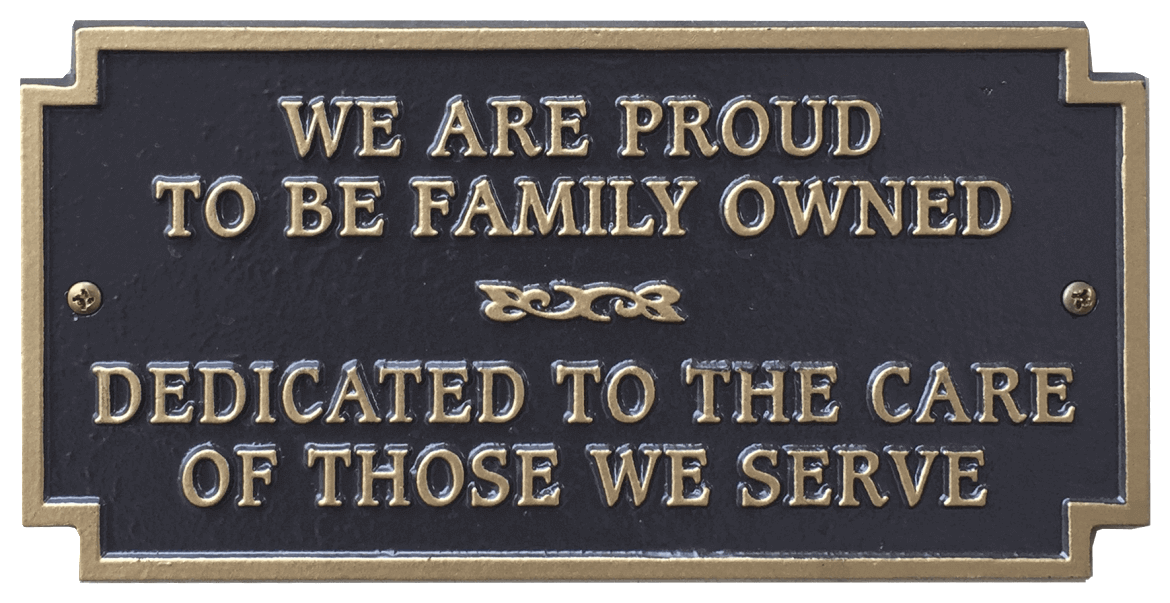Frequent Questions
Frequent Questions
Click on the questions below to reveal each respective answer.
-
What services do funeral directors perform?
Funeral directors are caring professionals dedicated to supporting bereaved families through loss. Beyond arranging cremations, burials, and memorial services, funeral directors provide compassionate guidance and emotional support during your most difficult moments. They serve as arrangers, coordinators, caregivers, and counselors—wearing many roles to ensure your loved one receives dignified care and your family receives comprehensive support.
The services provided by funeral directors include:
Respectfully transporting your loved one from the place of death to the funeral home
Providing professional, dignified care including embalming, preparation, and presentation
Meeting with your family to plan meaningful funeral services reflecting your loved one's life
- Completing necessary legal documents, certificates, and permits
- Obtaining death certificates and coordinating with vital records
- Arranging final disposition with cemeteries, crematories, or other facilities
- Drafting and submitting obituaries to newspapers and publications
- Coordinating with clergy, musicians, florists, transportation services, pallbearers, and arranging military or fraternal honors
- Managing all details of the funeral service and procession with professionalism and care
- Guiding families through paperwork for Social Security benefits, veteran's benefits, insurance claims, and connecting you with grief support resources
Funeral directors combine practical expertise with genuine compassion. They handle countless details so your family can focus on remembering and grieving. Their goal is to honor your loved one's memory while providing your family with comfort, support, and peace of mind during this challenging time.
-
Why are funerals so expensive?
Several significant services are combined in a traditional funeral. Transporting your loved one to the funeral home, professional embalming and preparation, using the facilities and personnel for the viewing and the funeral ceremony, transportation of a hearse or service vehicle, memorial programs, choosing a casket, purchasing a vault or grave liner, and purchasing a cemetery plot are all possible extra expenses, even though there is a non-declinable basic services fee. Every component plays a crucial role in remembering your loved one and helping your family get through this trying time.
-
What is the purpose of a funeral?
A funeral or memorial service provides an opportunity for the living to show respect for the deceased and pay tribute to their life. It provides a framework to freely and openly express our beliefs, feelings, and thoughts about the death of our loved one. It gives us permission to grieve our loss, share in solidarity, and gain strength from others who are experiencing the same loss.
-
What are the choices for funeral services?
The four main types of funeral services include the traditional funeral service, the memorial service, the committal service, and the affirmation or celebration of life service.
-
Can you still have a funeral if you choose cremation?
Yes, cremation or burial is merely the disposition of the body. Funeral services are to honor and remember your loved one, regardless of disposition.
-
Can I plan in advance if I choose cremation?
Pre-arranging funeral services can be done regardless of the final disposition. Pre-arranging is simply recording your wishes with the funeral home and prefunding if you choose to do so.
-
What information should I bring to the arrangement conference?
- Advance Directives - If the deceased left any written advance directives concerning the disposition of his remains and memorialization, you need to bring them with you. These instructions may be found in a will, or there may be a formally witnessed disposition directive, funeral pre-arrangements, or a pre-need contract.
- Military Discharge Papers
- Details on any cemetery property owned by the deceased or the family (grave plot, columbarium space, etc.)
- Recent photograph of the deceased and any personal effects that you wish to be included in the viewing or burial
- Specific information on the deceased:
- Full legal name
- Address
- Marital status
- Social Security number
- Date of birth
- Place of birth (city and state)
- Educational history (number of years of schooling)
- Armed Forces service dates and serial number
- Occupation or profession
- Parent's names, including mother's maiden name
- Next of kin and other survivors


